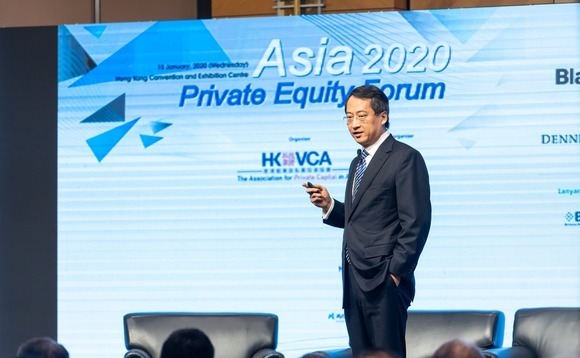
Discipline, operations key to PE success in China - DCP's Liu

Private equity investors in China should prioritize discipline on valuations and operational capabilities rather than spend their time worrying about macroeconomic risks, according to David Liu, chairman and founder of DCP Capital.
Liu (pictured) told the Hong Kong Venture Capital & Private Equity Association's Asia forum that there will be a lot of opportunities as China adjusts to slower growth and introduces structural reforms. However, GPs should focus on building for the long-term, not following the market's flavor of the day.
China's private equity market has developed rapidly, so most investors have not lived through multiple business cycles. Many of them succumb to short-term temptation and opportunism. "PE investors are different from VC investors. PE invests in 15-20 portfolio companies per fund, so three or four bad deals can tank a fund. Investors should be more focused on risk control instead of finding a unicorn," said Liu.
Due diligence and decision-making for any deal should be an intensely grueling process, he added. When the process becomes too easy, it's often due to a lack of real understanding of the target business. Liu also noted that prudent investment terms and governance structures are frequently neglected in a bull market, but they provide essential downside protection when things don't go as planned.
DCP was established by Liu and Julian Wolhardt, both of whom previously held leadership positions with KKR in China. The firm, which closed its debut fund last year with $2.5 billion in commitments, advocates approaching investments with an industrialist mindset and offer genuine expertise.
This input is likely to be valuable in a slower growth environment as companies look for ways to protect their bottom line. Liu observed that Chinese entrepreneurs tend to be adept at driving revenue or share price growth but they lack disciplined operational practices in supply chain management, procurement, and manufacturing systems. He suggested that investors focus on areas that can generate quantifiable results to earn the trust of entrepreneurs before making broader proposals.
One example was KKR's investment in Haier, a Chinese home appliance manufacturer, in 2014. The private equity firm helped Haier acquire and integrate GE's home appliances business, which delivered a wide range of synergies. In 2016-2017, the company achieved cost savings of RMB1 billion ($145 million) from the integration. KKR also contributed to the development of a more advanced procurement system. In 2015-2016, procurement cost savings amounted to RMB1.7 billion.
"Haier's management worked with us not because that they needed our money but because they needed a partner who could further improve their business," Liu said.
Latest News
Asian GPs slow implementation of ESG policies - survey
Asia-based private equity firms are assigning more dedicated resources to environment, social, and governance (ESG) programmes, but policy changes have slowed in the past 12 months, in part due to concerns raised internally and by LPs, according to a...
Singapore fintech start-up LXA gets $10m seed round
New Enterprise Associates (NEA) has led a USD 10m seed round for Singapore’s LXA, a financial technology start-up launched by a former Asia senior executive at The Blackstone Group.
India's InCred announces $60m round, claims unicorn status
Indian non-bank lender InCred Financial Services said it has received INR 5bn (USD 60m) at a valuation of at least USD 1bn from unnamed investors including “a global private equity fund.”
Insight leads $50m round for Australia's Roller
Insight Partners has led a USD 50m round for Australia’s Roller, a venue management software provider specializing in family fun parks.








